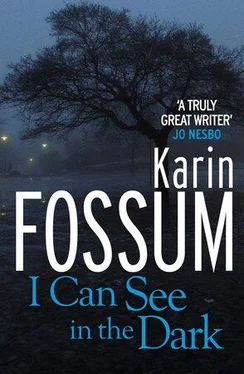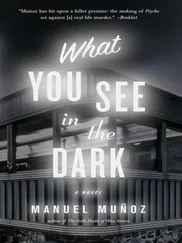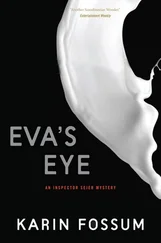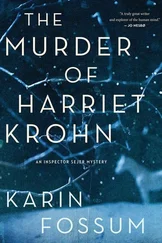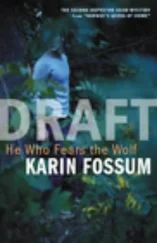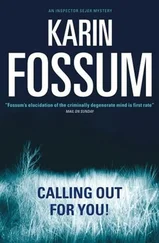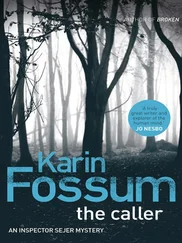Dr Fischer, who’s in charge of our ward, was once an idealist, or at least I imagine that he was; with a genuine desire to assauge the pain of others. Alleviating discomfort and despair is important to people right at the end of their lives.
Dignified and self-sacrificing, he wanted to move amongst the beds making a difference. Now he has a resigned and round-shouldered look as he mooches from room to room wearing shabby suede shoes and a downcast expression. He has worked at Løkka Nursing Home for more than twenty years, and the people he cares for only have a short time to live. It’s as if the mere thought of this takes his breath away. He also possesses a very fastidious conscience. It cries out over the least little thing, as if all the misery in the world were his fault. It’s often struck me that one fine day this troublesome conscience will be the death of him, because such things weaken the entire organism. He has a habit of massaging his temple. As if there’s something in there that’s irritating him, a difficult idea, perhaps, or a painful recollection. Each time he sits down to rest, he raises his hand and begins the massage. His job is strenuous. In my mind’s eye I see a thousand hands tugging and tearing at his coat, grabbing at his hair, forcing him up against the wall.
I need help, voices cry, I must have relief, I want more, and right away!
Painkillers, sleeping pills, something that eases fear and anxiety, something that lessens grief and hopelessness. He can’t get away. Perhaps he’s got problems at home to wrestle with too, for all I know. A wife he no longer loves, children who have no respect for him. He’s trapped in his world, trapped in his white coat, his pricking conscience chasing him up and down the corridors. I sense that Dr Fischer doesn’t like me. He’s out to get me, I think. He’ll catch me, if he has the chance, he’s always waiting for an opportunity. I’m very sensitive to such things; it’s something to do with energy, or lack of energy. Nothing flows between us, no warmth, no sympathy.
I keep out of his way, for he’s a kind of harbinger of things to come.
I’ve never seen him in the park near Lake Mester.
Ten minutes’ walk from the park is the Dixie Café, half hidden amongst a clump of birch trees, with its dark green plastic tables and chairs. Two large palm trees in blue pots stand by the door. They’re artificial, of course. Perhaps the owner thinks this is an exotic touch, but there, amongst the birches, they simply look odd. The Dixie has a youthful clientele. They buy burgers and Coke, and loiter by the wall, nudging and jostling each other in a friendly way. I’ve walked there a couple of times and sat at one of the plastic tables with a styrofoam cup of anaemic coffee, watching the youngsters. They don’t inhabit the same world as me. Perhaps it’s more that I’ve been cut adrift from everyone else, as if a cord has been severed. Or the wheels of time have worn it through. I don’t really understand my own situation, I don’t understand this sense of always being an outsider, of not belonging, of not feeling at home in the day’s routines. Forces I can’t control have torn me away from other people. I like being on my own, but I want a woman. If only I had a woman!
At this point I might mention that when I was a small boy, I found my father hanging from a rafter one day. His face was engorged and bluish black, and a great, thick tongue stuck out from between his lips. If nothing else, it would help to explain why I’m the way I am. But it’s not true. My father was a decent man and he never hurt a fly. Distant and detached he certainly was, but he didn’t hang himself from a rafter. He died when I was fourteen, of a massive thrombosis.
I’m sure Dr Fischer is soft on Sister Anna and has his dark and wistful eye on her. Perhaps Sali Singh, who works in the kitchen, has too. I notice such things immediately. There’s a lot of communication between human beings that isn’t expressed in words, and I’m exceedingly observant. Some people don’t understand this, they concentrate on what’s being said, while others, like me, become masters of the hint, the tiny signals that tell. A quick glance at Sali and I know how he’s feeling, even though he may have his back to me. I look at his shoulders, notice if they’re hunched. Is he standing four-square, or tripping about nervously. I take in how the movement of his hands emanates from his squat body, evenly, or in fits and starts, haltingly or fluently. Sali is a big man, most of his weight is round his waist. I wonder what he thinks about Norway and Norwegians, deep down in his dusky, Indian heart. Probably nothing very flattering, we’re so unbearably spoilt. But he makes lovely open sandwiches, standing in his kitchen at Løkka. He’s indifferent to budgets, just loads the bread generously with all manner of good things. How odd that must seem to a man who can hardly be a stranger to poverty. His eyes are almost black. His oily hair takes on a bluish sheen, as he stands there working beneath the fluorescent lighting.
Eddie and Janne are often at the park.
I used to think of them as Romeo and Juliet, but that was before I knew their names. The other day they were calling to each other in the spring air, like two playful children. Look at this, Janne, no, stop messing about, Eddie, and so on in that vein. They sit close together on the bench, entwined in each other, they neck and pat and stroke, purring like cats. I’ve never seen anything like it. They’d eat each other, skin, hair and all, if only they could. And they’re never self-conscious, even when there are several of us sitting by the fountain. Some people break into soft smiles, I notice, others turn away because they don’t like it. Personally, I don’t know what to think, but surely this is something private, there should be more decorum in public. And nothing about Eddie and Janne is decorous. They always bring something to eat. When they’ve given each other a thorough squeezing, they open a bag of buns, or a bar of chocolate. They eat the way children do, with unabashed greed. Eddie is perhaps sixteen or seventeen, Janne possibly a little younger, both are slim and good-looking, clad in precisely the same costume: distressed jeans and grey hoodies. Both have dark hair, identically styled: close-shaved at the sides and with a comb of hair on the crown, you can hardly tell them apart.
I remember Sali saying that when he first came to Norway, he couldn’t tell the difference between men and women. Everyone wears jeans, he said, and trainers. The women cut off their hair. It is not very nice, why don’t they make themselves look more beautiful? I explained that climate dictates the way we dress. Norwegian women can’t go around in saris and sandals, I said. You know what the autumns and winters are like here.
Eddie and Janne will never get married, never have children, or own a house or a car, experience responsibility and debt and difficult days. The bond between them is only a frail alliance, although they don’t know it themselves. Sometimes a wave of sadness washes over me when I think of the impending break-up, the tears and recriminations, the bewilderment that it didn’t last, the apportioning of blame. When I’m feeling generous they put me in mind of newly opened tulips, as they sit on their bench. It’s April. The thaw is here and everything melts and runs away, there’s too much of everything. An agonising and confusing time that chills my back as I sit on the bench in front of the fountain, while my face is gently warmed by the sun. My jacket comes off and goes on again, coltsfoot squeezes up through the snow, and crisp, wafer-thin ice decks the puddles in the morning. The asphalt is bare, so summer shoes can come out of the cupboard; but it remains deep winter in the forest, with dark and frosty nights.
Читать дальше
